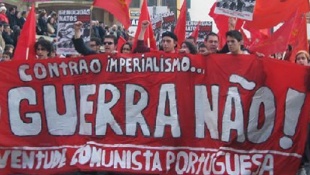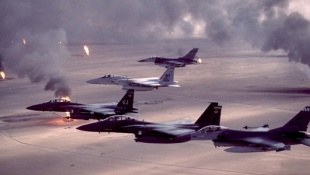Article by Albano Nunes, member of the Secretariat of the CC
Independently of what will be the outcome (this article has been written before its taking place) and its immediate practical results, the London G20 summit constitutes a political relevant event which reflects the deep crisis of the capitalist system and is worldwide ravaging.
It certainly is very discussable if a forum with the G20’s composition might have any legitimacy to take on decisions that are of the vital interest of all the countries and peoples of the world. The United Nations would have been the adequate setting, once liberated from the imperialist instrumentalization which has victimized it, reassuming its role as a founder of a peace and international cooperation instrument and democratically involving the almost two hundred countries it integrates. But it is very expressive that the attentions are turned, although in many cases with unjustified illusions and hopes, not towards the G7 or any other instance entirely dominated by the great capitalist powers, but to a summit which, besides these, also involves Brazil, China, India, Russia and other countries with a growing presence within the economic and political international relations.
One can surely consider that the capitalist economic and financial crisis is so profound that the USA itself and its allies – ideologically defeated on what concerns its neoliberal fundamentalism, at odds with the inefficiency of the adopted capitalist salvation measures, and restless before the possibility of social explosions and revolutionary developments, that might threaten the imperialist globalization – need to share responsibilities and achieve compromises that can neutralise unfavourable evolutions. But this reflects a much deeper reality. A new and complex setting of powers within the international level is under way, which the great transnational capital and imperialism have to obligatorily, take into consideration. A setting which causes damage to an imperialist "new order", announced by Bush (father), and has led to blood shed in ex-Yugoslavia, Afghanistan, Iraq, Palestine and other parts of the world, but that workers’ and peoples’ resistance has prevented from being accomplished. A new setting of powers that, as the XVIII the PCP Congress underlined, brings particularly in to evidence, the weakening of the USA international position as a dominant power, and at the same time, China’s and other "emerging powers" growing role, not forgetting the European Union’s pretensions as an imperialist bloc.
On their own, these reasons are more than sufficient to evaluate the London meeting’s importance and pay particular attention to its outcome. But under the international context in which it’s taking place, the relevance and urgency of the issues on the agenda, the serious disagreements and contradictions about the way of dealing towards the capitalist crisis confer to it a "historic" tone. It is of particular significance, that the Bretton Woods construction begins to be questioned and the North-American dollar role, as a reserve currency, is being questioned, namely by China. As expected and significative, all indicates the G20 will pass aside some of the major measures to boost the current dramatic social situation, measures which presuppose a turn, that only the hardening of the resistance and the workers’ and peoples’ struggle can achieve.
Meanwhile, the G20 summit’s importance must not distract us from other events, assigned to have an important impact within the international relations, such as the NATO summit, for this aggressive alliance’s 60th anniversary, on the 4th April, or the European Union / USA "informal" summit, on the 5th April, in Prague, meaningfully preceded by Obama’s worrying statement on the 27th March, announcing a new aggressive escalade in Central Asia. The danger of an adventurous answer to strike the capitalist crisis, is real. It is necessary to tackle it back, with perseverance.


